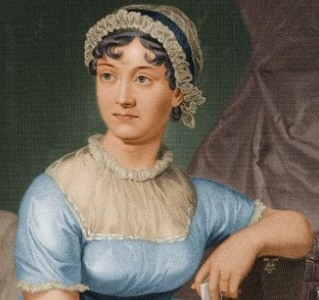I’m pleased to announce Better Know a Book’s second guest post by Izzy Long! I’m excited to welcome another voice to this blog, and hope you all enjoy her post below!
With Valentine’s Day just behind us, what better novel to recommend than Madame Bovary, by Gustave Flaubert? This is a romping good read, which will leave you alternately wanting to shout at the silly Emma Bovary, and identifying with her sighing romanticism. It’s a cautionary tale, but full of twists and turns as we watch Madame Bovary approaching her inevitable downfall.
Quick Read? Yes, this is a quick read, and the story really gallops along. Bookworms will read it in a day and a half.
Difficulty? Easy! It’s a great introduction to French literature for this very reason.
Synopsis
The book opens with a description of Charles Bovary, the man Emma will marry. It shows him at school, a weak and ineffectual man who is distinctly average. He manages to pass his medical exams, and becomes a mediocre country doctor. His mother marries him off to what she thinks is a fortune – a local widow. She dies, but instead of investing in shares she has squandered her money, leaving very little money to Charles.
He soon falls in love with Emma Bovary, a pretty country girl, and after a romantic and lavish wedding they settle down to married life. Emma soon becomes bored now that the romance of the wedding is over. She dreams obsessively of a more glamorous life, and eventually becomes depressed when she cannot obtain her dream. She becomes pregnant, and Charles moves them to a new town in an attempt to stir Emma out of her depression. Here Emma meets Leon, a law clerk, who reads romantic fiction.
The baby is born and so is a romance between Leon and Emma, who is not distracted by her new baby, but rather bored with it. She does feel guilty however, and put Leon off, and he soon gives up and moves to Paris to study law. Soon afterwards a wealthy man called Rodolphe declares that he loves Emma and they too begin an affair. Emma is rather careless, and the neighbors in the little French town begin to gossip about her. Charles doesn’t have a clue what is happening, so appears rather stupid.
He messes up an operation on someone’s clubfoot, which has to be amputated, and Emma hates him for being stupid and incompetent. He continues to love her, whilst she focuses entirely on her love for Rodolphe, running up huge bills with local shopkeepers and Lheureux, the moneylender, as she buys presents and new dresses to delight her lover. Charles’s practice is struggling after the botched operation and he struggles to pay her debts.
Rodolphe begins to tire of the demanding Emma and…
I am not going to spoil the ending of the book for you, because hopefully by now you will want to read it for yourself. Let’s just say that things do not end particularly well for anyone in the book, but the twists and turns before you reach the end (this synopsis takes you about half way) will keep you in suspense.
What Makes this book awesome? This book is awesome because it is so readable, and the story is told at a great pace, so you never get bored. If you’re looking to expand your knowledge of the classics and want an easy way in to French literature, then Madame Bovary is a great place to start. It doesn’t hurt at all! You can recognize lots of things in Emma which you identify with as you read, and hence you can sympathize with her as well as finding her behavior outrageous. She is the first example of someone using retail therapy in literature I have ever come across, and all of her emotions are channeled in the wrong ways. One can sympathize with Charles too, but not much, as he is so incredibly dim and blindly devoted to Emma. He used the book to criticize the bourgeoisie – the merchants and capitalists who had risen to power after the French Revolution. They were the ‘middle-classes’ whose manners and obsession with money was considered vulgar by many, including Flaubert. Emma’s dissatisfaction with her bourgeois lifestyle is a reflection of the author’s attitude. The book also brings up issues about women’s lives, and about language’s inability to express what it is we are really feeling.
- The book was written at a time when sexual matters were not discussed in novels, so it caused a scandal when it was published. Flaubert was very upset by this, as it is not the point of the book at all. He was put on trial in 1857, for obscenity, but acquitted. The resulting publicity did no harm to sales!
- Flaubert’s style was considered very new at the time, as the language he used matched the action in the book. When Emma was depressed, the prose matched her mood, when she was happy, Flaubert’s writing reflected that in style. While this may seem normal to us these days, it was quite new and innovative in the 19th Century. One of the reasons it is so easy to read by a modern audience is down to Flaubert’s ‘modern’ style of writing. It is considered one of the most influential novels ever written for this reason. One critic wrote, “Flaubert established for good or ill, what most readers think of as modern realist narration, and his influence is almost too familiar to be visible”.








